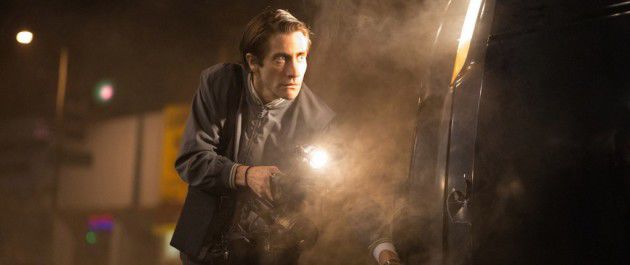Acting, tone may help ‘Nightcrawler’ creep into Oscar race
November 13, 2014
After being in theaters for just over a week and a half, “Nightcrawler,” an independent thriller starring Jake Gyllenhaal, has already gathered serious critical acclaim, especially for its lead actor’s captivating performance.
Gyllenhaal delivers a fantastic performance as Louis Bloom, a sociopath who stumbles into the world of “night-crawling,” where freelance cameramen record footage of accidents or violent crimes and sell them to the highest bidding TV station.
Bloom has a subtle menace throughout the film, constantly reciting what seem to be word-for-word definitions from a business textbook on how to run a business.
Despite a modest $8 million budget, Gyllenhaal’s star power and widely circulated trailers helped “Nightcrawler” bring in over $10 million on its opening weekend and $19 million over the course of its theatrical run so far.
Gyllenhaal has already received some considerable Oscar-buzz for his performance, and for good reason. The 33-year old star, who found box-office success in “The Day After Tomorrow” and an Oscar nomination for his role in “Brokeback Mountain” over a decade ago, has had a phenomenal stretch of performances recently, starring in “Nightcrawler,” “Enemy,” “Prisoners,” “Source Code” and David Fincher’s “Zodiac” in 2007, and earning critical acclaim for each performance.
In “Nightcrawler,” Gyllenhaal takes a dive into a more abnormal, twisted character than he has played in the past and does so with great success. Losing 20 pounds to play the role, Gyllenhaal steals every scene he is in, not by acting outwardly crazy, but instead with a darkly funny phony smile and a duplicitous manner that lets audiences know that something in him is not quite right.
Rene Russo also does a fine job in the film playing Nina, a manager at the news station to whom Louis sells his recorded footage. Bill Paxton makes an appearance as another night-crawler.
“Nightcrawler” is director Dan Gilroy’s directorial debut, but it barely shows in the moody, well-paced film. Cinematographer Robert Elswit (“There Will Be Blood,” “Michael Clayton”) seamlessly blends together the handheld footage Gyllenhaal captures throughout the film with great, steady shots that only add to Gyllenhaal’s performance. Gilroy and Elswit’s greatest work in the film, though, is definitely seen in the climactic chase scene toward the conclusion of the movie, where the creepy, tense tone of the film comes to a head and boils over into a breathtaking scene on the streets of Los Angeles.
Despite the generally dark tones of the movie, “Nightcrawler” doesn’t go without its moments of satire, usually seen in Bloom’s inability to understand basic social principles. One blemish on an otherwise great film, though, is the score, composed by James Newton Howard. The movie’s tone, which is essentially dark throughout, and the protagonist’s eerie façade of genuineness is derailed by the music, which is often mellow and brings a much lighter atmosphere with it.
Despite this, though, “Nightcrawler” is a chilling, exciting movie that should spell success for its lead actor — and possibly director — during awards season.












